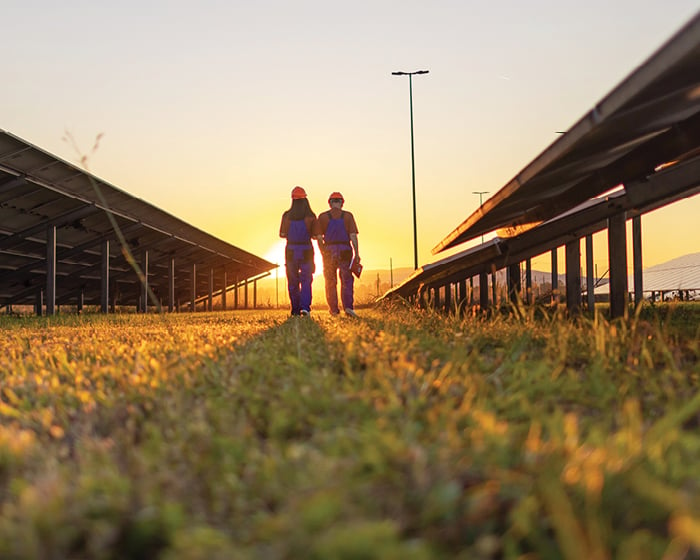Key Takeaways
- Several energy efficiency tax incentives, including 179D, 45L, 25C, and 25D, are being repealed or phased out under new legislation by mid-2026 or the end of 2025.
- To qualify for these incentives, projects must meet specific construction or acquisition deadlines before the phase-out dates.
- Careful planning of construction and home improvement timelines is essential to maximize eligibility for existing credits and deductions.
The Inflation Reduction Act (IRA) introduced many new incentives and enhanced existing programs related to energy efficiency and renewable energy. After operating under the IRA since January 1, 2023, Congress passed new legislation, called the One Big Beautiful Bill (OBBB), affecting many of these incentives.
Energy Efficient Commercial Buildings Deduction – Section 179D
The 179D tax deduction, officially known as the Energy Efficient Commercial Building Tax Deduction, was originally enacted to encourage energy efficiency in commercial buildings.
Initially, the deduction could reach up to $1.80 per square foot for buildings achieving a 50% energy cost reduction compared to a reference standard. A key feature allowed designers of government-owned buildings to receive allocated deductions, thus encouraging energy-efficient design in public buildings.
The deduction was repeatedly extended over many Congressional sessions and was made a permanent part of the US tax code by the Consolidated Appropriations Act of 2021.
The IRA significantly changed Section 179D, enhancing benefits and expanding eligibility.
Changes included:
- Increase the maximum deduction to $5.00 per square foot, with provisions for annual inflationary adjustments.
- Introduction of requirements for satisfying prevailing wage and apprenticeship standards to qualify for the enhanced deduction.
- Broadened eligibility to allow all tax-exempt entities to allocate the deduction to their designers.
- Allow for a building to potentially qualify for the deduction every three to four years for new energy efficient upgrades.
These enhanced deductions were in place for projects through the end of 2032.
Impact of New Tax Legislation on Section 179D
The OBBB repeals the 179D deduction entirely for projects that begin construction after June 30, 2026. Projects that meet the beginning of construction test prior to this date will be eligible for the deduction, regardless of when the building is placed into service.
After the passage of the new tax legislation, the Trump administration issued an executive order requesting new guidance regarding the beginning of the construction. This guidance may change the definition of the phrase or revise the requirements to meet the beginning of construction test.
If you or your clients have construction or renovation projects on the horizon, please reach out to ensure the projects’ timelines meet the requirements for this deduction.
New Energy Efficient Home Credit – Section 45L
The 45L tax credit is a federal incentive encouraging the construction and renovation of energy-efficient residential properties. It was first introduced in the Energy Policy Act of 2005. The qualification standards involved showing heating and cooling consumption at least 50% lower than that of a comparable home meeting the 2006 International Energy Conservation Code, with at least 1/5 of the savings from building envelope improvements.
The Inflation Reduction Act (IRA) of 2022 extended the 45L tax credit and significantly changed its provisions. These enhanced credits were in place for projects through the end of 2032 with a credit ranging from $500 to $5,000 per unit for multifamily projects and $2,500-$5,000 for single family projects.
Impact of New Tax Legislation on Section 45L
The OBBB repeals the 45L credit for any qualified new energy-efficient home acquired after June 30, 2026. If you or your clients are pursuing this credit, it is worth considering if construction timelines can be adjusted. Many of the phase outs for energy incentives are based on beginning construction dates – which do not apply to 45L. Dwellings must be acquired before the termination date of June 30, 2026 to be eligible.
Energy Efficient Home Improvement Credit - Section 25C
Section 25C tax credit, also known as the Energy Efficient Home Improvement Credit, encourages energy-efficient upgrades in homes. The credit, established in 2005 under the Energy Policy Act, offers tax credits for homeowners who invested in residential energy efficiency. The credit saw numerous expansions and extensions through subsequent acts. The most significant update came in 2022 with the Inflation Reduction Act (IRA).
Under the IRA, the 25C credit was increased to 30% of certain qualified expenses. A lifetime limit of $500 was replaced with an annual credit limit of up to $1,200 for most improvements, including replacements of windows, doors, heating, and cooling equipment, and building envelope improvements, such as insulation and air sealing and a separate limit of $2,000 for specific property like heat pumps. These enhanced credits were in place for projects through the end of 2034.
Impact of New Tax Legislation on Section 25C
The OBBB repeals the 25C incentives for property placed in service after December 31, 2025. This repeal will affect homeowners who are interested in upgrading their overall home energy efficiency. Any planned qualifying home improvement should be made prior to this date to ensure eligibility.
Residential Clean Energy Credit - Section 25D
The credit is available to taxpayers who invest in qualified clean energy property for their homes, including solar electric property, solar water heating property, fuel cell property, small wind energy property, geothermal heat pump property, and battery storage technology expenditures. It was first introduced in the 1970s for solar projects in response to the energy crisis but was allowed to expire in 1985. The Energy Policy Act of 2005 reinstated the credits, which were enhanced through the Inflation Reduction Act to include additional qualified energy property. It was first introduced in the 1970s for solar projects in response to the energy crisis but was allowed to expire in 1985. The Energy Policy Act of 2005 reinstated the credits, which were enhanced through the Inflation Reduction Act to include additional qualified energy property.
Under the IRA, the credit is available to taxpayers who invest in qualified clean energy property for their homes, including solar electric property, solar water heating property, fuel cell property, small wind energy property, geothermal heat pump property, and battery storage technology expenditures. This credit is capped at 30% of the eligible costs for projects through the end of 2032.
Impact of New Tax Legislation on 25D
The 25D credit is scheduled to terminate for property placed in service or costs paid after December 31, 2025. To ensure eligibility, any planned qualifying expenditures should be made prior to this date.
Next Steps for Energy Incentives
The OBBB has a major impact on many of the energy incentives. Most critically, many energy incentive timelines have changed, and several incentives will be diminished or removed altogether.
If you or your clients have upcoming commercial or residential construction projects, we can help you develop a plan to maximize these incentives while they are still available.
Stay Up to Date

Business Credits & Incentives
Who We Are
Eide Bailly is a CPA firm bringing practical expertise in tax, audit, and advisory to help you perform, protect, and prosper with confidence.





